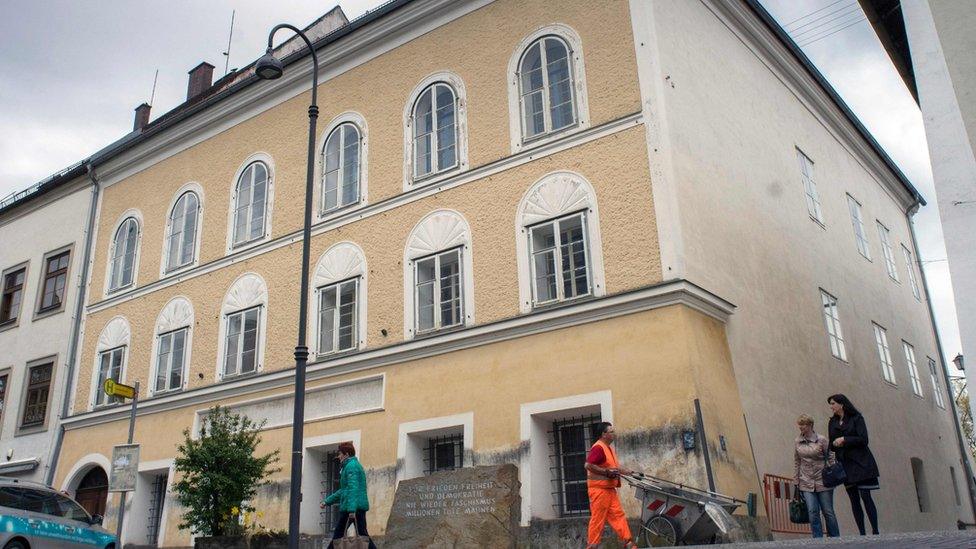Adolf Hitler house in Austria to be used for police human rights training
- Published

The Austrian government seized the house in 2016
The house in Austria that Adolf Hitler was born in is to be used for human rights training for police officers in the latest twist to a long-running row over what to do with it.
The government bought the building in Braunau am Inn near the German border under a compulsory purchase order in 2016 after a lengthy dispute.
The genocidal dictator was born in a rented room on the top floor in 1889.
Construction work to convert the house is expected to start in the autumn.
But the plans are controversial. Some Austrians want to tear the house down, and a committee of experts had decided to demolish it to stop it becoming a focal point for neo-Nazis.
However critics say that would be a denial of Austria's past, while others have said it should be used as a house of reconciliation or as the premises for a charity.
Under the latest scheme, building works are expected to be completed by 2025 with the police force moving in by the following year, according to Austrian broadcaster ORF.
During Nazi rule, the house was transformed into a shrine to Hitler - who only lived in the house for a few months - as the town drew in a wave of tourists.
But as the Nazis began to lose control in 1944 it was boarded up.
For decades the Austrian government rented the house from its former owner, Gerlinde Pommer, in an attempt to stop far-right tourism.
It was used by a charity as a day care centre for people with special needs until Mrs Pommer blocked future renovations.
In 2016, the government passed a law allowing to seize the house from her in return for over ÔéČ800,000 (┬ú694,000) in compensation.
Three years later the interior ministry announced plans to turn the 17th Century house into a police station.
Austria was annexed by Nazi Germany in 1938, and for decades presented itself as one of the first victims of the regime.
But many at the time welcomed the move, known as the Anschluss or connection, and Austria has begun to speak about its own complicity in Nazi crimes.